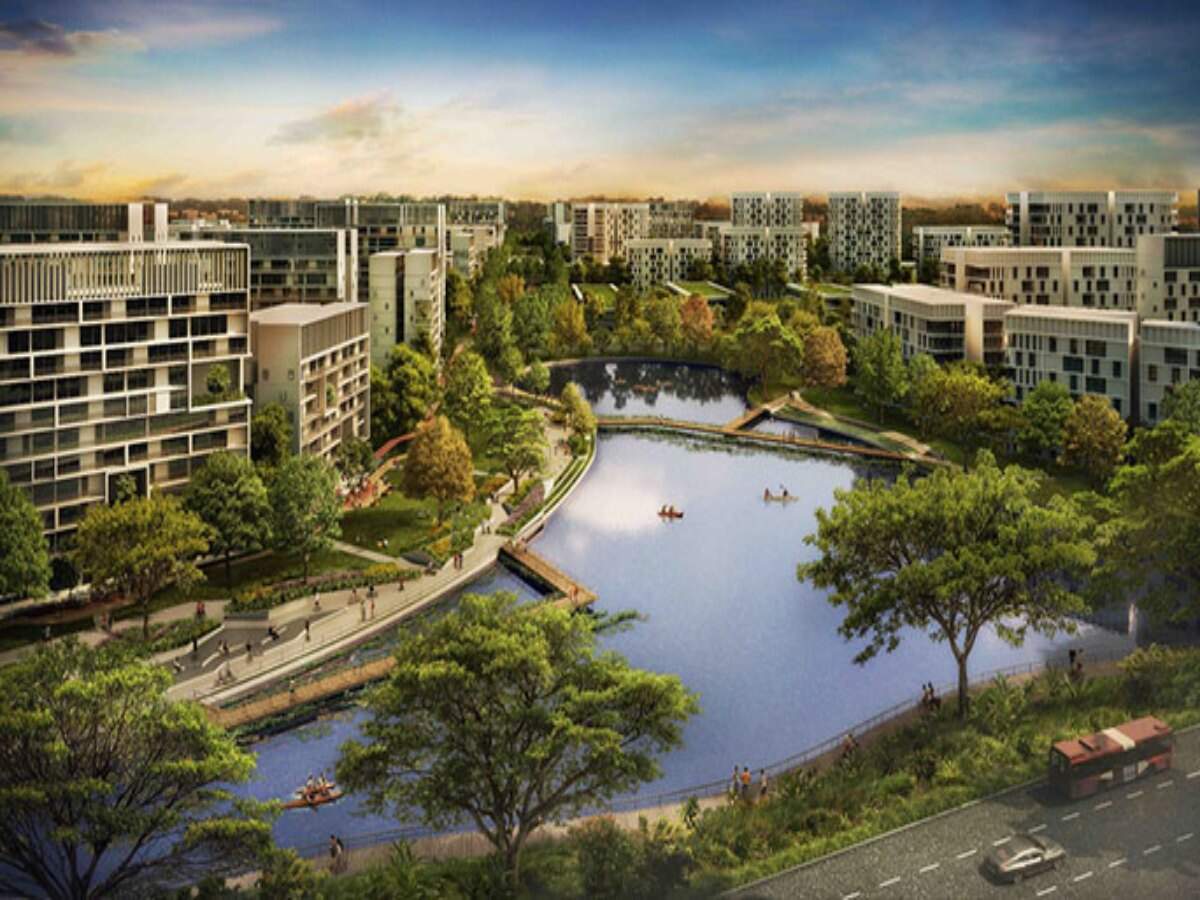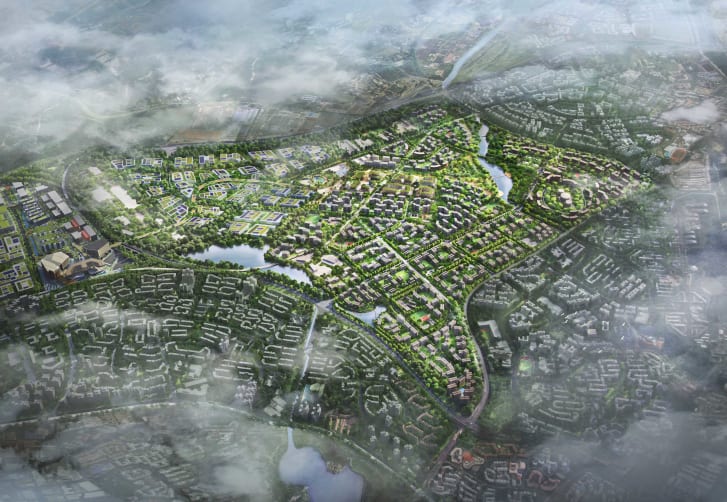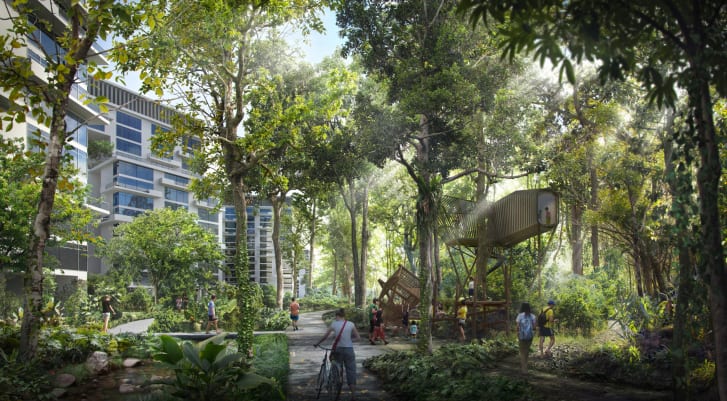Singapore to get an all new eco city, in Tengah
An all-new eco smart city is now coming up in Singapore. Also known as a forest town, this new place is going to be nature’s true haven. The new city is aimed at improving the health and well-being of residents, paving the way for a better future. The eco-city is going to be car-free, and its construction is taking place in Tengah, in the West Region. It is going to have five residential districts with 42000 homes, and help to reduce carbon emissions in the city. The forest town, as it is being often referred to used to be a military hub, with brick making factories all around. All that's going to change when the new smart city is going to be built. In its new avatar, the forest town is going to be an example of good and clean living. The car-free smart city is going to have safe zones for pedestrians, and also for cycling. The forest town without cars is going to be free from traffic, and as you can imagine, much of the day-time traffic stress is not going to be there. It is a sure way to develop wellness for the citizens, while keeping sustainability in mind.
[caption id="" align="alignnone" width="727"]
The car-free smart city is going to have safe zones for pedestrians, and also for cycling. The forest town without cars is going to be free from traffic, and as you can imagine, much of the day-time traffic stress is not going to be there. It is a sure way to develop wellness for the citizens, while keeping sustainability in mind.
[caption id="" align="alignnone" width="727"] Source: CNN[/caption]
The five districts of Tengah are going to be Park, Garden, Forest Hill, Plantation, and Brickland. Even though the city is car-free, residents from here will be able to travel in buses in order to go into town. Tengah will also be connected with a water catchment area, and a nature reserve. Surely, it is going to be a one-of-a-kind place where you can breathe easy, and experience wellness like never before.
Of the 42,000 homes being built at Tengah, more than 70% will be made available through the HDB on long-term leases. Prices for two-bedroom apartments currently begin at just 108,000 Singapore dollars ($82,000), with the first apartments set to complete in 2023.
[caption id="" align="alignnone" width="727"]
Source: CNN[/caption]
The five districts of Tengah are going to be Park, Garden, Forest Hill, Plantation, and Brickland. Even though the city is car-free, residents from here will be able to travel in buses in order to go into town. Tengah will also be connected with a water catchment area, and a nature reserve. Surely, it is going to be a one-of-a-kind place where you can breathe easy, and experience wellness like never before.
Of the 42,000 homes being built at Tengah, more than 70% will be made available through the HDB on long-term leases. Prices for two-bedroom apartments currently begin at just 108,000 Singapore dollars ($82,000), with the first apartments set to complete in 2023.
[caption id="" align="alignnone" width="727"] Source: Courtesy The Housing & Development Board[/caption]
Source: Courtesy The Housing & Development Board[/caption]
All residents will have access to an app allowing them to monitor their energy and water usage. ("You empower them to take control of where they can cut down their energy consumption," Chong said.) Digital displays in each block will meanwhile inform occupants of their collective environmental impact, which could even encourage competition between residential blocks, according to SP Group.
Regardless of whether the use of smart technology can significantly dent greenhouse gas emissions or not, engaging residents with their own consumption could instigate behavioral change, according to Perrine Hamel, an assistant professor at Nanyang Technological University's Asian School of the Environment. This, she added, is a crucial part of Singapore's goal of reaching peak emissions by 2030 and reducing them thereafter.
"Thinking about food consumption and thinking about the way people use air conditioning is all part of (achieving climate targets)," she said. "Changing behavior is going to be an integral part of it and, of course, urban design is the first way to affect and change behavior."
Beyond promoting and protecting biodiversity, conserving nature on the site can lead to further behavioral change, Hamel said.
Source Times Of India